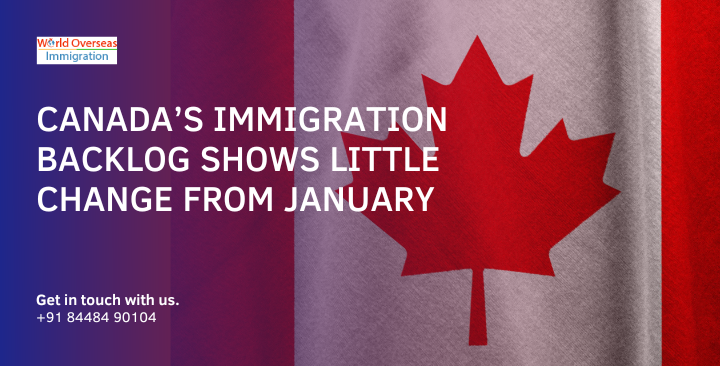In an email CIC news Immigration, Refugees and Citizenship Canada (IRCC) remained in line with January figures just over 2.1 million,
Data is for January 31-February 1.
Inventory progress across all lines of business since July 2021 is as follows:
- 2-3 January 2023: 2,152,220 persons
- December 3, 2022: 2,243,097 persons
- November 3, 2022: 2,411,388 persons
- September 30, 2022: 2,600,000 persons (figure completed by IRCC)
- August 31, 2022: 2,583,827 persons
- July 15-17, 2022: 2,679,031 persons
- June 1-6, 2022: 2,387,884 persons
- April 30-May 2, 2022: 2,130,385 persons
- April 11-12, 2022: 2,031,589 persons
- March 15 and 17, 2022: 1,844,424 persons
- February 1, 2022: 1,815,628 persons
- December 15, 2021: 1,813,144 persons
- October 27, 2021: 1,792,404 persons
- July 6, 2021: 1,447,474 persons
current inventory
The citizenship list as of February 1 holds 302,980 applicants, compared to 301,388 on January 3.
The permanent resident list as of January 31 stood at 523,557 people, compared to 521,552 on January 2.
Also, on January 31, the temporary residence list stood at 1,294,974 people, compared to 1,329,280 on January 2.
Therefore, there was an increase in two of the three major categories. Still, the inventory for temporary residence decreased by just over 34,000 applications between the January and February figures.
| immigration category | Individuals from January 31 – February 1 |
|---|---|
| permanent residence | 523,557 |
| temporary residence | 1,294,974 |
| citizenship | 302,980 |
| Grand total | 2,121,511 |
Express Entry and PNP Inventory
IRCC data shows that as of January 31, there were 47,868 applicants for the Express Entry program waiting in the queue. This is a small decrease of 541 from the January 3 data, which stood at 48,409.
IRCC re-opened the round of invitations for Express Entry candidates for all programs in July last year. Draws in the Provincial Nominee Program (PNP) were limited between September 21, 2021, and July 6, 2022, as the IRCC struggled to meet its service standard of six months or less for Express Entry applications. The pause in Express Entry invitations to Federal Skilled Worker Program (FSWP) and Canadian Experience Class candidates has prompted IRCC to reduce Express Entry inventory and return to the six-month service standard for those who receive invitations to apply by July 6. Enabled.
The PNP has a total inventory of 66,214 applicants (both base and enhanced applications combined), which is a significant increase from the January PNP inventory data of 62,720 individuals.
family class list
Listings for all family-class immigration programs decreased slightly to 124,771, compared to the January 3 figure of 125,631.
The Spouses and Partners Sponsorship Program, at 61,191, is a slight decrease from 61,481 on Jan. 3, with one of the largest inventories among all lines of business.
The Parents and Grandparents Program (PGP) lists 52,801 individuals, compared to 52,960 individuals awaiting a decision in January.
service standard
Service standards provide expected timelines, or targets, for how long it should take to process an application. The service standard is different from the actual time taken by IRCC to process applications. Applications not processed within the service standard for their program are classified as backlogged.
IRCC aims to process 80% of applications across all lines of business within a reasonable time. This may vary depending on the type of application. For example, six months is standard for permanent residency applications through the Express Entry program. It tallies for other economy class lines of business. The IRCC states that the service standard for family class sponsorship of a spouse and child is 12 months.
Temporary residence applications have service standards that range between 60-120 days depending on the type of application (work or study) and if it was submitted from Canada or abroad.
© CIC Updates All Rights Reserved. Visit Worldoverseasimmigration.com to find your Canadian immigration options.
